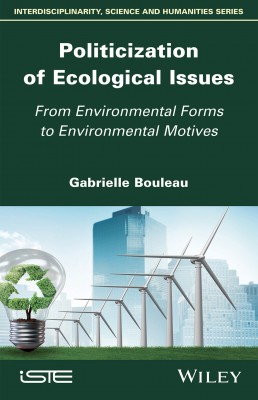
The legitimacy of environmental policies is an issue of increasing concern for analysts. Ecological stakes are deemed to be global, but global public decisions are rare and implemented with difficulty. Dissensus prevails on environmental ethics and there is little evidence of any greening of policy tools. The global framing of the environment fails to account for how people relate to the ecological realities which surround them.
Rather than placing the environment at a distance, Politicization of Ecological Issues advocates for building legitimacy from people’s perceptions of singular forms and patterns in their environment. Based on scholarly literature in political ecology and empirical cases of water policy in Europe, the book shows how the qualification of environmental realities has been politicized and translated into motives for public action. Similarly, it argues that theoretical debates addressing the ecological crisis are not only dealing with ideas, but rather advocating for specific environmental forms that are deemed to be motives of hope or worry.
1. How Can We Study Environmental Policies?
2. Politicization and Institutionalization of the Environment.
3. Stabilized Motives of Fresh Water Quality Control in Europe.
4. Motives Under Discussion in Two Water Agencies.
5. Motives for Anticipating the Ecological Crisis.
Gabrielle Bouleau is a senior researcher in political science at IRSTEA, the French environmental research institute and an associate researcher at the LISIS laboratory at Paris-Est University. Her research addresses the construction of environmental indicators and decisions in the face of decentralization, Europeanization and globalization.